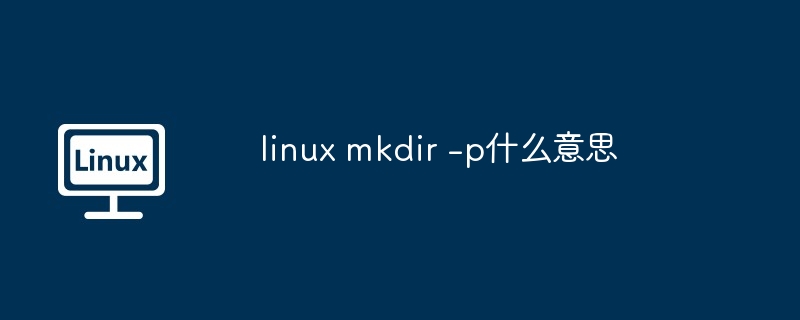
Linux mkdir -p command is used to create multi-level directories, including non-existent parent directories. It has the advantages of simplifying directory creation, preventing errors and improving efficiency.

Linuxmkdir -pCommand: Create a multi-level directory
What Is it themkdir -pcommand?
mkdir -pis a Linux command used to create multi-level directories. Unlike the normalmkdircommand,mkdir -pcan recursively create non-existing parent directories.
Syntax
mkdir -p [选项] 目录Options
-m Mode: Set the permissions of the directory .-v: Show detailed output, including directories created.-Z: Sets the SELinux context for the directory.Function
mkdir -pThe command works in the following way:
Example
To create a multi-level directory using themkdir -pcommand, use the following steps:
mkdir -p /home/user/Documents/NewFolderThis command will create a directory namedDocumentsin the/home/userdirectory, and Create a directory namedNewFolderwithin theDocumentsdirectory.
Advantages
The main advantages of using themkdir -pcommand are:
The above is the detailed content of What does linux mkdir -p mean?. For more information, please follow other related articles on the PHP Chinese website!




